Demystifying Adenomyosis: The Role of Anatomic Categorization
Adenomyosis is a common gynecological condition in which tissue similar to the endometrium grows within the muscular wall of the uterus. This can lead to a range of symptoms, including painful periods (dysmenorrhea), heavy menstrual bleeding (menorrhagia), anemia, infertility, and…
Key Points Lay SummaryEndometriosis in Youth: Diagnostic and Treatment Insights
Adolescent endometriosis presents unique diagnostic and management challenges due to both patient-related and clinical factors. Young patients often delay seeking care due to inexperience, discomfort discussing symptoms, or normalization of pain. At the same time, clinicians may overlook endometriosis as…
Key Points Lay SummaryFrom Probe to Procedure: UBESS Enhances Preoperative Planning
A new ultrasound-based system called UBESS (Ultrasound-Based Endometriosis Staging System) is designed to help surgeons estimate how complex endometriosis surgery might be before it happens. This system is used during a routine transvaginal ultrasound and classifies patients into three stages…
Key Points Lay SummaryKnowledge synthesis of the "Relevance of Endometriosis Diagnostic Tools"
Spiers et al. from the Department of Obstetrics and Reproductive Medicine at Angers University Hospital in France identified significant diagnostic challenges and the absence of definitive diagnostic tools for endometriosis. In response, they evaluated existing medical literature to enhance diagnostic…
Key Points Lay SummaryIntraoperative Transvaginal Ultrasound-Guided Resection of Bowel Endometriosis
Alec et al. from the Department of Obstetrics and Gynecology at Geneva University Hospitals aimed to show how to manage rectal endometriosis using ultrasound in a narrative video. The main goal of their procedure was to check the rectal wall…
Key Points Lay SummaryThe location of adenomyosis, and recurrent abortion
ESHRE defines repeated pregnancy loss (RPL) as the loss of pregnancies with two or more weeks of gestation. Adenomyosis is the presence of ectopic endometrium, in the myometrium. High-resolution transvaginal ultrasound and sonographic criteria can help to diagnose the disease…
Key Points Lay SummaryUltrasonographic findings and the clinical symptoms of pelvic endometriosis
Imaging techniques achieve the clinical diagnosis of endometriosis, which affects 10-15% of all women of reproductive age. Suspected patients with clinical history and symptoms need a systemic examination of the uterus, ovaries, adnexa, and peritoneal covering the rectouterine, retrocervical, and…
Key Points Lay SummaryManagement of uterine adenomyomas with percutaneous cryoablation.
Adenomyosis can negatively affect the quality of life by causing abnormal bleeding, pelvic pain, dysmenorrhea, and dyspareunia. It is often associated with endometriomas and/or leiomyomas. Treatment of the disease differs as conservative or radical, as well as pharmacological or surgical. For…
Key Points Lay SummaryUltrasonographic Presurgical Staging and Classification of Endometriosis
Laparoscopic surgery is the gold standard for diagnosing endometriosis, but a preoperative imaging procedure is strongly recommended. Transvaginal sonography by a skilled examiner is not inferior to MRI diagnostics regarding sensitivity and specificity in predicting the extension of deep endometriosis. …
Key Points Lay SummaryTransvaginal ultrasound or MRI for retroflexed uterus in endometriosis
Dr Matsuda and colleagues from the Department of Obstetrics and Gynecology, Nippon Medical School, Tokyo, Japan have published their study evaluating the effectiveness of transvaginal ultrasound on the diagnosis of uterine retroflexion in a recent issue of “Journal of Nippon…
Key Points Lay SummaryDiagnostic criteria for uterosacral ligament involvement in endometriosis.
Transvaginal ultrasonography is often used to diagnose endometriosis in suspected women due to its high resolution, low cost, and relatively low discomfort. Histologic confirmation of laparoscopically removed specimens is still the gold standard for appropriate diagnosis. The team led by…
Key Points Lay SummaryHow accurate is ultrasonography in evaluating deep infiltrating endometriosis?
Deep infiltrating endometriosis (DIE) appears to be the most severe form of endometriosis comprising 15-30% of all endometriosis patients. The difference in the presentation of the lesions ranges from simple adhesions to infiltrative nodules. Even though there is no consensus…
Key Points Lay SummaryTime to change out taboos about the radiologic evaluation of scar endometriosis
Scar endometriosis is one of the rare forms of endometriosis. According to traditional belief, it has always been evaluated radiologically on menstruation days. In the study conducted by Balaban et al, the authors compared the differences in lesions according to…
Key Points Lay SummaryA prediction model to identify endometriosis during routine ultrasound .
. Ureterolysis is an advanced surgical technique that involves dissection of the ureter from pelvic brim to the ureteric tunnel to avoid injury or freeing the ureter from endometriotic lesions. This manipulation usually requieres advanced surgical training and skill. In…
Key Points Lay SummaryThe effect of postoperative hormonal medication preferences on the recurrence rate of endometrioma
Endometrioma is the most investigated type of endometriosis. The recurrence after surgery is important regarding its and reoperation’s effect on ovarian functions. In the study conducted by Seung-Hye Choi et al, the researchers questioned the effect of different postoperative hormonal…
Key Points Lay SummaryEvaluation of retrocervical and parametrial deep endometriosis by detailed ultrasonography
The accuracy of ultrasonographic diagnosis of deep endometriosis in the retrocervical and parametrial areas may be poor due to the variable morphology of endometriotic lesions, the complex structure of the posterior parametrial compartment, and the difference in examiners' experience level.…
Key Points Lay SummaryThe accuracy of transvaginal ultrasound and magnetic resonance imaging for deep urinary tract endometrisis.
The prevalence of urinary tract endometriosis is 19-53% in patients within deep infiltrating endometriosis cases. The bladder and ureteral are the most common sites of the involvement. While preparing a radical surgery for a patient with deep endometriosis, the diagnosis…
Key Points Lay SummaryWho Is Diagnosing my Endo?
It is possible to acquire the skills necessary to diagnose endometriosis lesions as well as adenomyosis using three-dimensional rectosonography after a short learning period in an expert radiology center. This is according to a new study by French researchers published…
Key Points Lay SummaryComparison of imaging techniques for estimating the depth of bowel wall infiltration by endometriosis.
The surgical removal of deep endometriosis is the cornerstone of the management. However, the decision for the varying surgical approach types ranging from conservative management (shaving) to segmental or discoid resection depends on the depth of infiltration within the bowel wall, which…
Key Points Lay SummaryPrevalence of endometriosis and adenomyosis by transvaginal ultrasound.
Women who present dyspareunia, dysmenorrhea, dysuria, dyschezia, chronic abdominal, and pelvic pain, and infertility would benefit from the early investigation. If the correct diagnosis of endometriosis and/or adenomyosis can be made in advance, early treatment will improve the quality of…
Key Points Lay SummaryTransvaginal Ultrasound Accuracy for Uterosacral Ligament, Torus Uterinus and Posterior Fornix Endometriosis
The accuracy of transvaginal ultrasonography for the diagnosis of deep endometriosis depends on the location. The sensitivity is up to 80% when the lesion is in the rectosigmoid, but it decreases up to 66% for the detection of posterior vaginal…
Key Points Lay SummaryHow to measure the length of recto-sigmoid deep endometriosis reliably?
An in-depth assessment is needed when rectosigmoid deep endometriosis is decided to be treated surgically. Surgery carries a lot of risks and it is not always easy to decide which procedure the patient would benefit the most from. Patient-oriented surgical…
Key Points Lay SummaryEvaluation of preoperative risk factors of ureteral endometriosis
Endometriosis affects the urinary tract in 1% to 5.5% of the patients, and among them, bladder involvement is 70-85%, while ureteral involvement alone is 9% to 23%. Ureteral endometriosis is most commonly unilateral, especially on the left side, usually affecting…
Key Points Lay SummaryAdenomyosis: accuracy of the diagnostic methods and the synchronism with deep infiltrating endometriosis
Dr. Alborzi and associates from Shiraz University of Medical Sciences, Iran, have published their comprehensive retrospective research conducted on 3725 patients with clinical symptoms of endometriosis over a period of 3 years, in "Reproductive Sciences" medical journal. A relationship between…
Key Points Lay Summary"Speckle sign": a novel transvaginal ultrasound finding for posterior compartment endometriosis
Dr. Balcacer and associates from three medical institutions located in the USA report the results of their retrospective study on deep infiltrating endometriosis utilizing transvaginal ultrasound examination and the proposed “speckle sign” in the "Journal of Ultrasound Medicine". Pelvic ultrasound…
Key Points Lay SummaryComparison of diagnostic accuracy of imaging modalities for the deep infiltrating endometriosis
The treatment of deeply infiltrated endometriosis (DIE) is usually personalized and the potential success for the available therapeutical options is dependent on early and accurate diagnosis. Laparoscopy is the gold standard for the diagnosis of DIE. Other non-invasive diagnostic methods…
Key Points Lay SummaryDiagnosis and treatment algorithm for endometriosis
Endometriosis is a chronic and progressive disease that affects 25-30% of women between 25-35years, clinicians commonly experience during their gynecologic practice. However, the diagnosis is still late or sometimes incorrect, and this creates severe health problems and worse outcomes. A…
Key Points Lay SummaryTransvaginal sonography for predicting the distance between rectosigmoid endometriosis and the anal verge
For optimal surgery, pre-surgical assessment of the distance between rectosigmoid deep endometriosis lesions and the anal verge (Lesion to Anal Verge Distance-LAVD) is recommended by many specialists. A group of researchers from Norway, Austria, and Australia studied the accuracy of…
Key Points Lay SummaryBuilding an ultrasonographic database for superficial endometriosis.
Chowdary et al. from University of Auckland, Australia, recently published a retrospective, small group study in Australian New Zeland Journal of Obstetrics and Gynecology, to demonstrate ultrasonographic findings of mild endometriosis patients with pelvic pain are associated with their laparoscopic diagnosis.…
Key Points Lay SummaryWhat clinicians know about adenomyosis? Any association with severe endometriosis?
Dior et al. from the Royal Women's Hospital in Parkville, Australia, designed a prospective study to assess the association between severity of endometriosis and sonographic evidence of adenomyosis (SEOA) in their recently published article appearing in The Journal of Minimally…
Key Points Lay SummaryHow to evaluate ureteral endometriosis : A review of the literature
In this recently published review of the literature, Barra et al. from Genova, Italy intend to provide a useful tool to guide physicians in the management of deep infiltrating endometriosis. Authors elected 67 abstracts from Pubmed and Medline in accordance with PRISMA…
Key Points Lay SummaryCan we predict the complexity of laparoscopic surgery by ultrasound?
This is a multicentric, retrospective cohort study recently published in the Journal of Minimally Invasive Gynecology by Tompsett et al. in which the results of the transvaginal ultrasonographic examinations (TVS) are compared to the results of the laparoscopic operations performed…
Key Points Lay SummaryMRI Best at Detecting Intestinal Deep Infiltrating Endometriosis
Magnetic resonance imaging (MRI) seems to be a better method in identifying deep infiltrating endometriosis in the intestine compared to two-dimensional ultrasonography (2DUS), found a study by researchers in Italy and Spain. However, this does not seem to be the…
Key Points Lay SummaryDetection of Uterine Malformations and its Link to Endometriosis
Dr. Abd El Fattah recently published a research article titled “Uterine Cavity Abnormalities in Patients with Endometriosis in Alexandria: A Diagnostic Test Accuracy Study” in Obstetrics and Gynecology International that delineated and presented the results of his study. The study has two…
Key Points Lay Summary
 By Nasuhi Engin Aydin
By Nasuhi Engin Aydin

 By Selma Oransay
By Selma Oransay
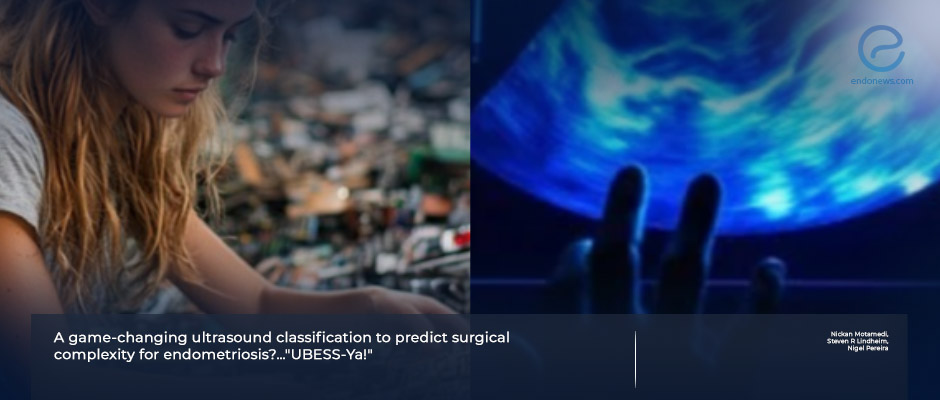
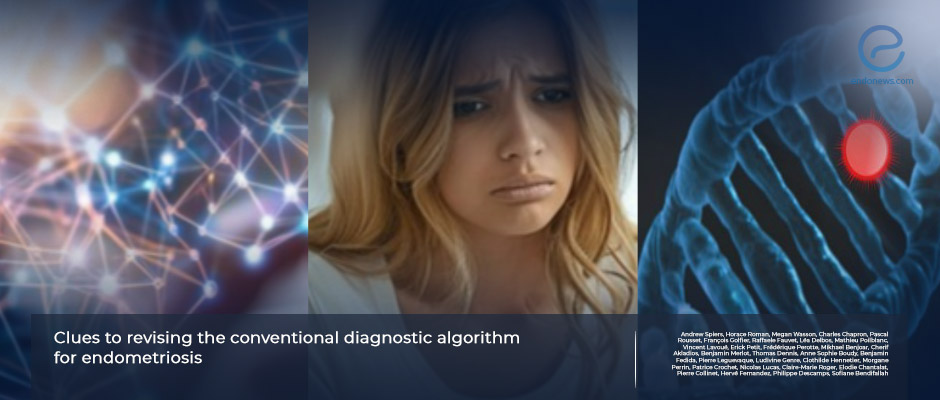
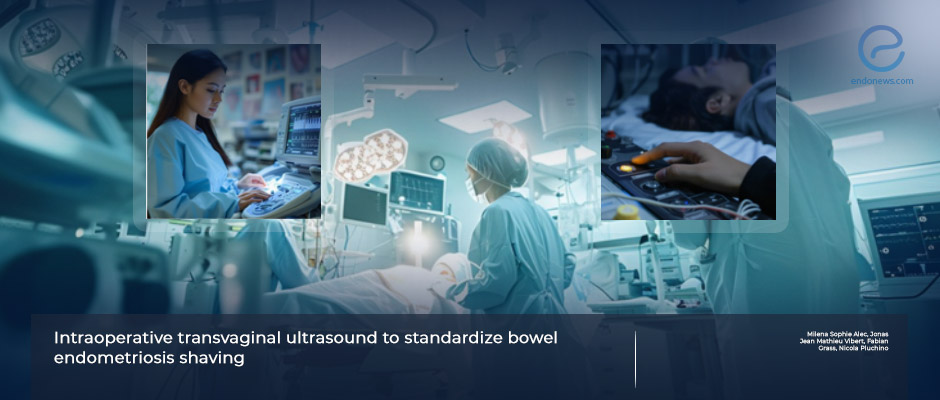
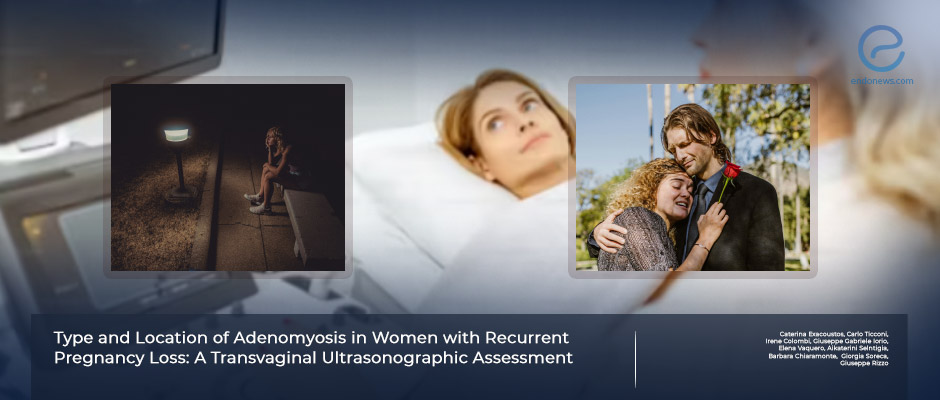
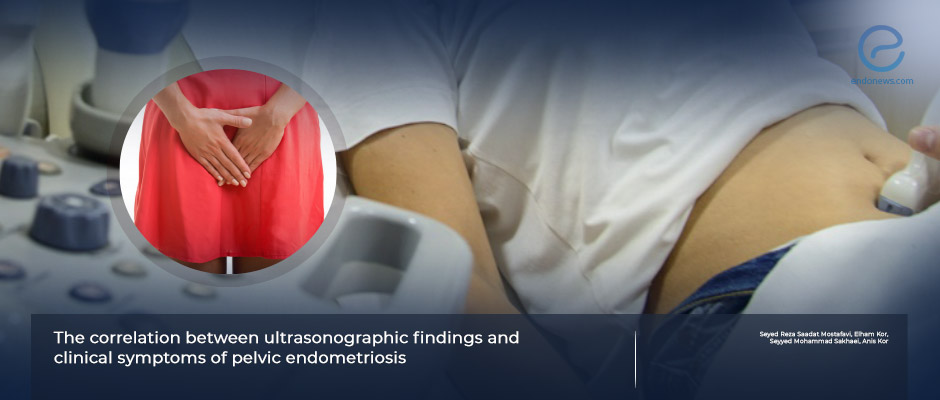





 By Eylül GÜN
By Eylül GÜN

 By Bahar Yuksel
By Bahar Yuksel

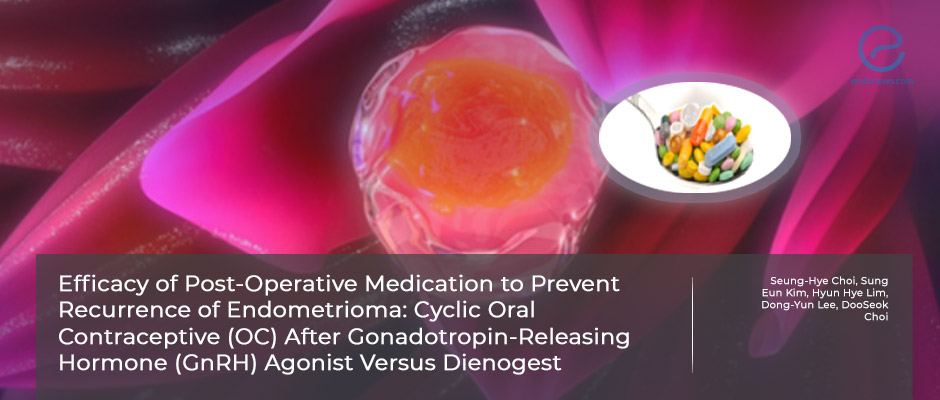



 By Özge Özkaya
By Özge Özkaya









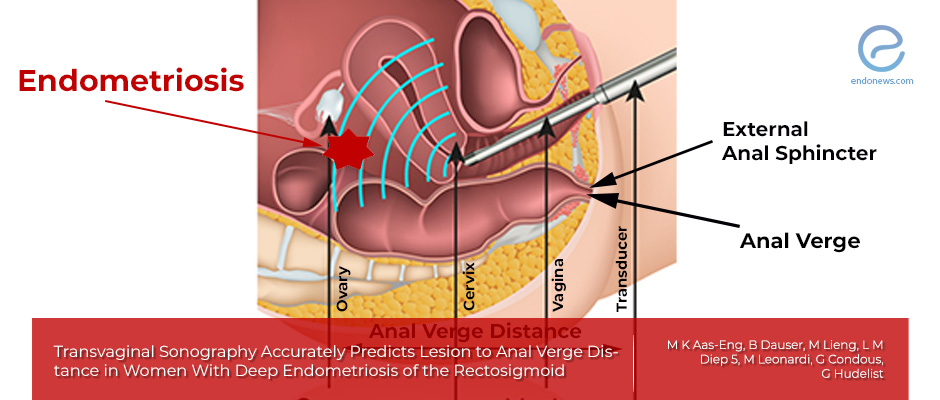
 By Timur Seckin
By Timur Seckin






 By Kasthuri Nair
By Kasthuri Nair